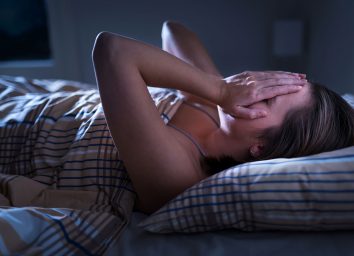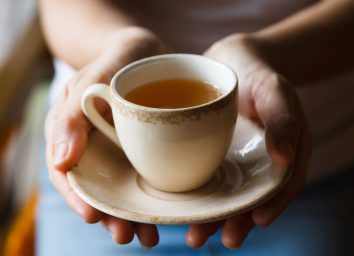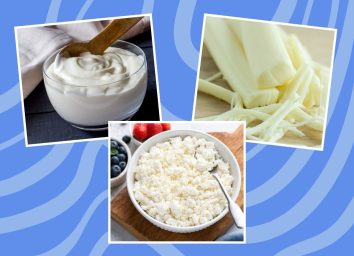Best Supplements for Sleep, According to Experts
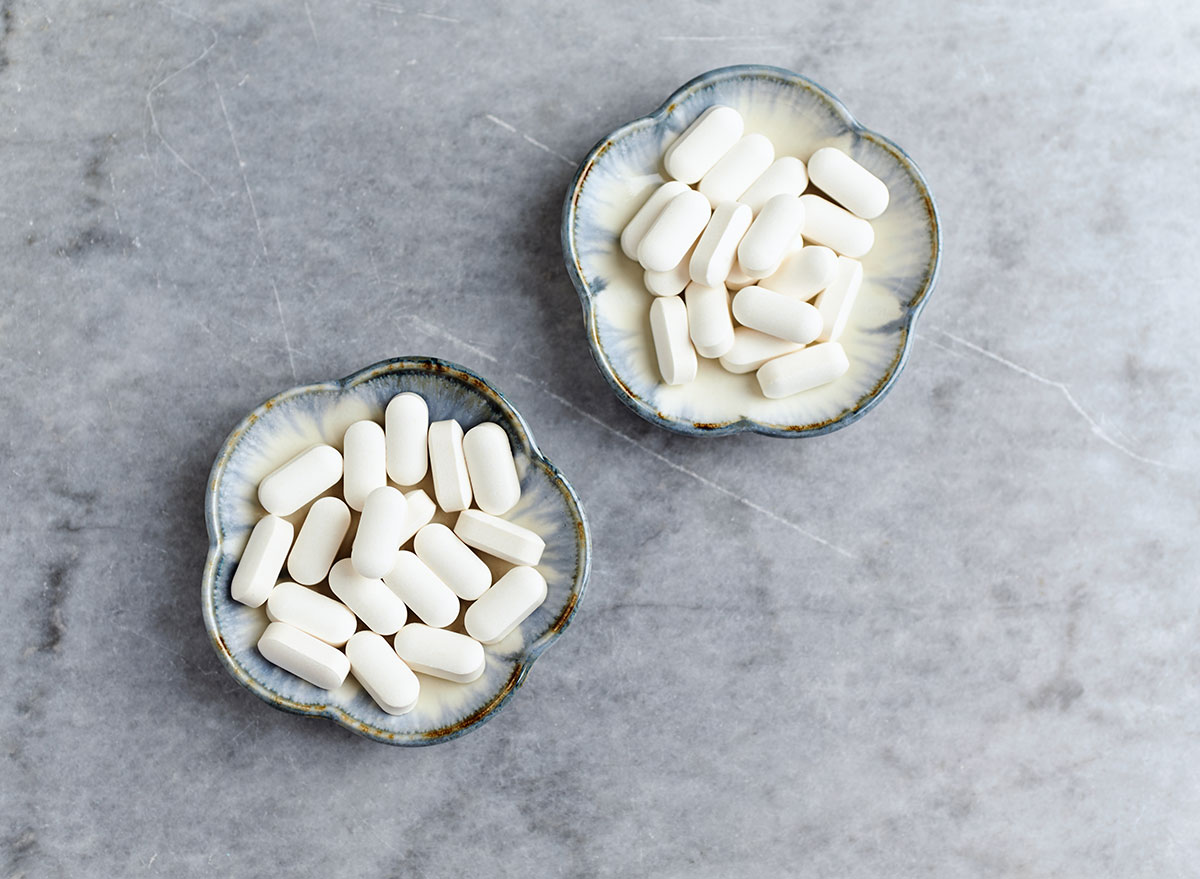
Sleep, glorious sleep. We could all use more of it. And yet…just one more scroll through your favorite social media app, book chapter, podcast episode, late-night talk show. No more! If you've been biding time with nighttime distractions because you've been having trouble falling and staying asleep, know that help is on the way.
Turns out, a variety of natural supplements can help you enjoy a better night in dreamland. Below, registered dietitians weigh in on their top picks. As always, talk to your doctor before taking a new supplement. Read on, and for more on healthy eating, don't miss 7 Healthiest Foods to Eat Right Now.
Melatonin
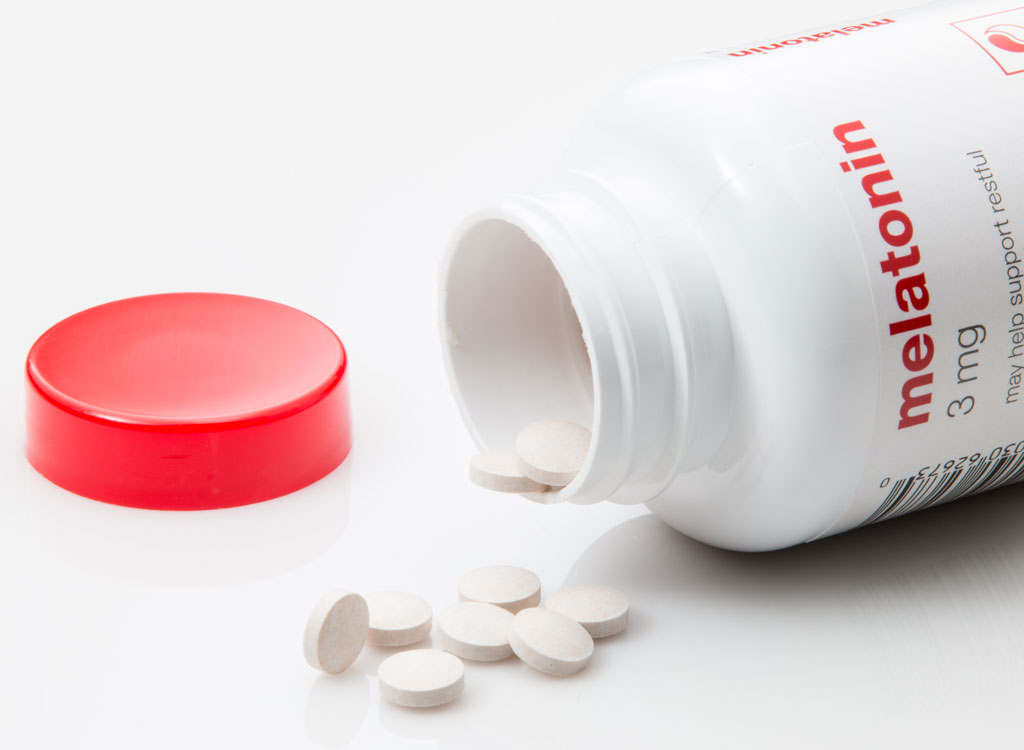
Let's start with the most commonly known sleep supplement: melatonin. "You can't have a conversation about sleep without bringing up melatonin. Melatonin is [the 'sleep hormone'] and is created from the amino acid l-tryptophan. The pineal gland secretes melatonin at dusk, and levels continue to rise until mid-morning. Moderate levels of stress or exercise enhance your ability to secrete melatonin, but its cyclical ebb and flow is often disrupted in people with poor or inconsistent sleep patterns," says Paul Kriegler, RD/LD, a Registered Dietitian with Life Time.
"Melatonin secretion decreases with age, which could be part of the reason older adults sleep less," he continues, noting that along with for older adults, melatonin supplementation can be beneficial when traveling across time zones or adjusting to a new sleep schedule. Also worth noting: "In addition to supporting sleep, melatonin has been shown to support healthy cholesterol levels, normal inflammatory levels, and can support restful sleep, especially in those with neurodegenerative diseases, depression, chronic fatigue, fibromyalgia, headaches, and insomnia."
Magnesium
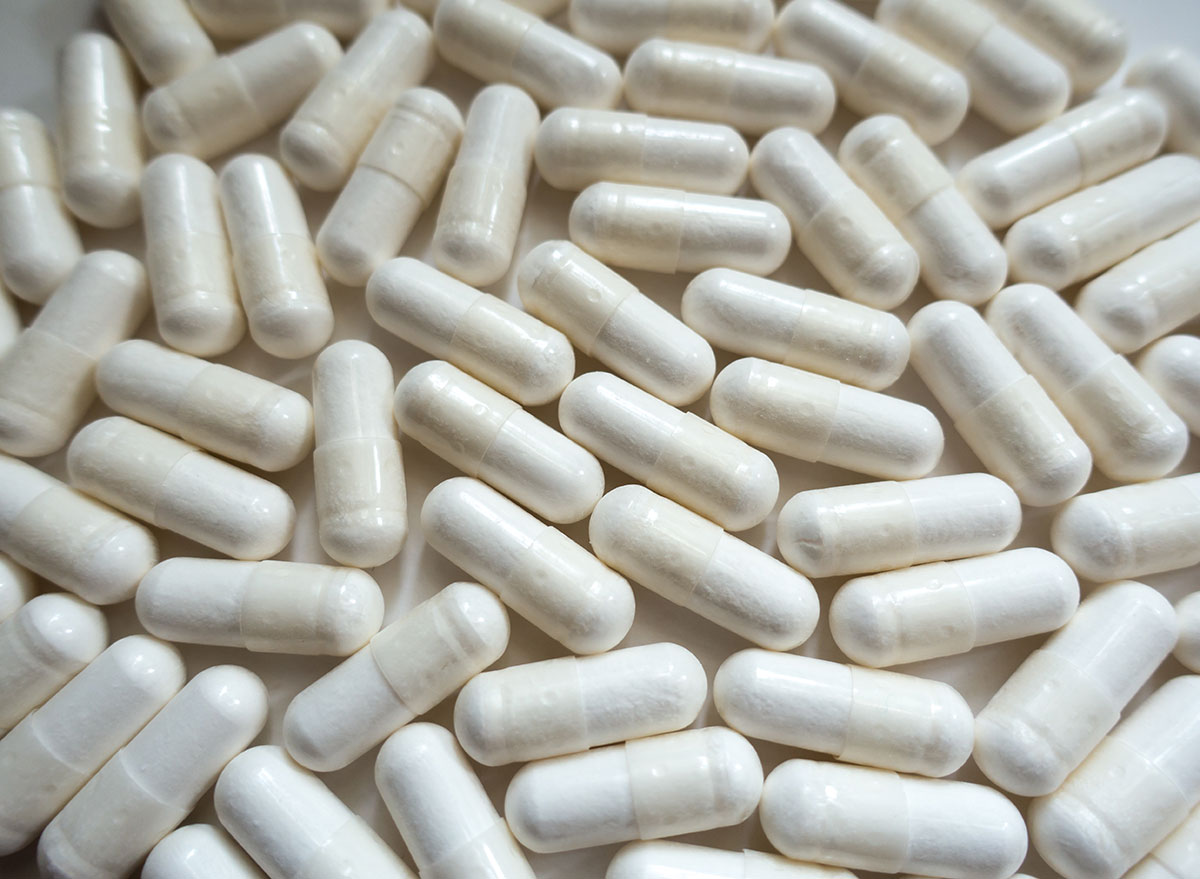
Talk about a miraculous mineral for sleep. "Magnesium is involved in over 300 reactions in the body and is thought to regulate the body's internal clock, keeping the circadian rhythm steady. Magnesium also helps to regulate how excited the central nervous system gets and has been linked to reduced feelings of stress and anxiety," Megan Wong, RD, Registered Dietitian, for AlgaeCal explains. "Magnesium can also help to relax muscles, with magnesium deficiency possibly contributing to Restless Leg Syndrome, a common cause of sleep disruption."
Sharing Wong's excitement for magnesium as a sleep aid, Amy Gorin, MS, RDN, a plant-based registered dietitian and owner of Plant-Based Eats in Stamford, CT, elaborates: "Magnesium may help improve how many hours of sleep you get as well as the time it takes to fall asleep. This is particularly the case for older adults, according to a 2012 study in Journal of Research in Medical Sciences," says Gorin, who personally likes recommending magnesium threonate, a type of magnesium that may have brain health benefits. FYI: In the above study, as Wong notes, magnesium supplements were linked to significantly increased sleep time, melatonin levels, and improvements in subjective measures of insomnia.
READ MORE: 7 Healthy Diet Changes That Help You Sleep
Ashwagandha
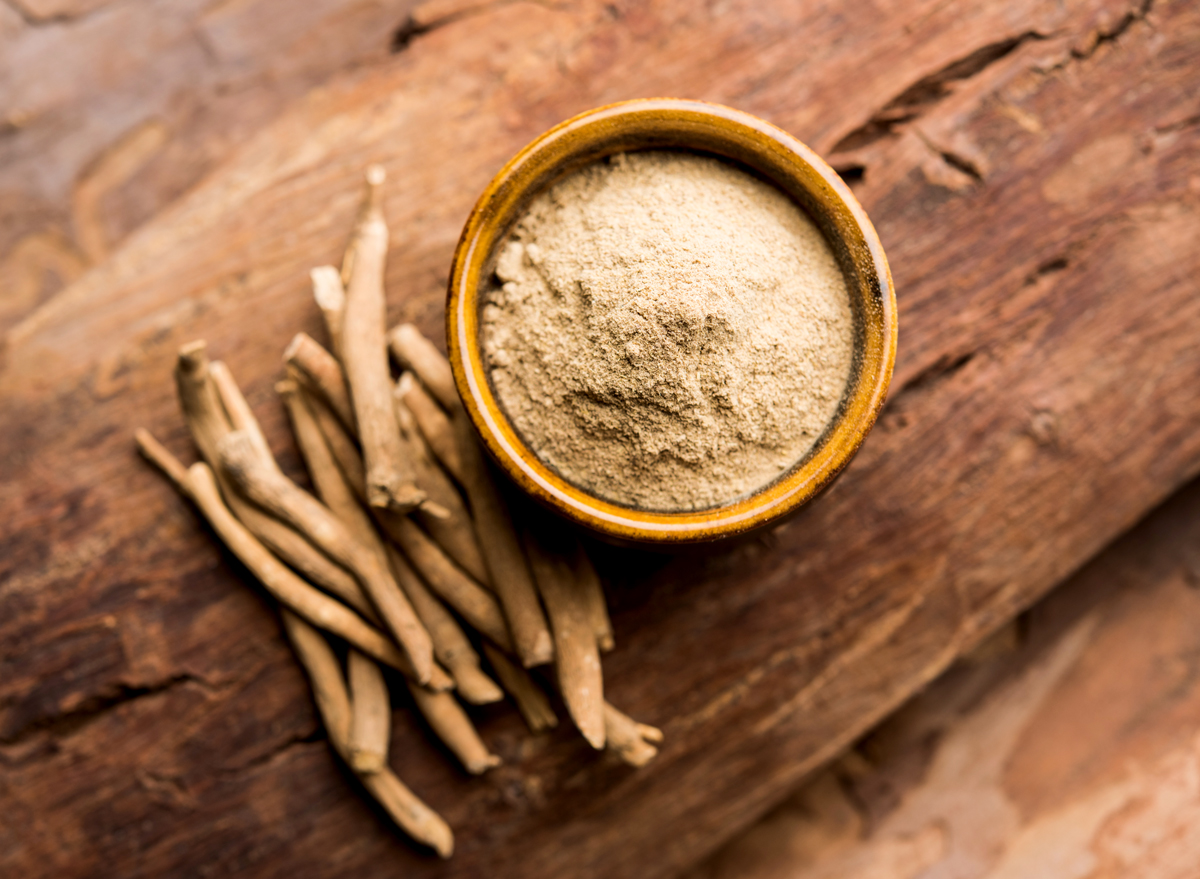
Say "all aboard!" to this adaptogenic herb for a better night of ZZZs. "Ashwagandha can fight stress and anxiety and be an effective sleep aid," say Eat This, Not That! Medical Expert Board members Lyssie Lakatos, RDN, CDN, CFT & Tammy Lakatos Shames, RDN, CDN, CFT, aka The Nutrition Twins, authors of The Nutrition Twins' Veggie Cure and co-founders of NutritionTwins.com and the 21-Day Body Reboot, referencing this 2019 double-blind, randomized, placebo-controlled study.
"The leaves of the plant contain triethylene glycol, which has been found to induce sleep. Ashwagandha improves sleep quality and helps people to sleep longer and may be especially helpful for people who suffer from insomnia."
GABA
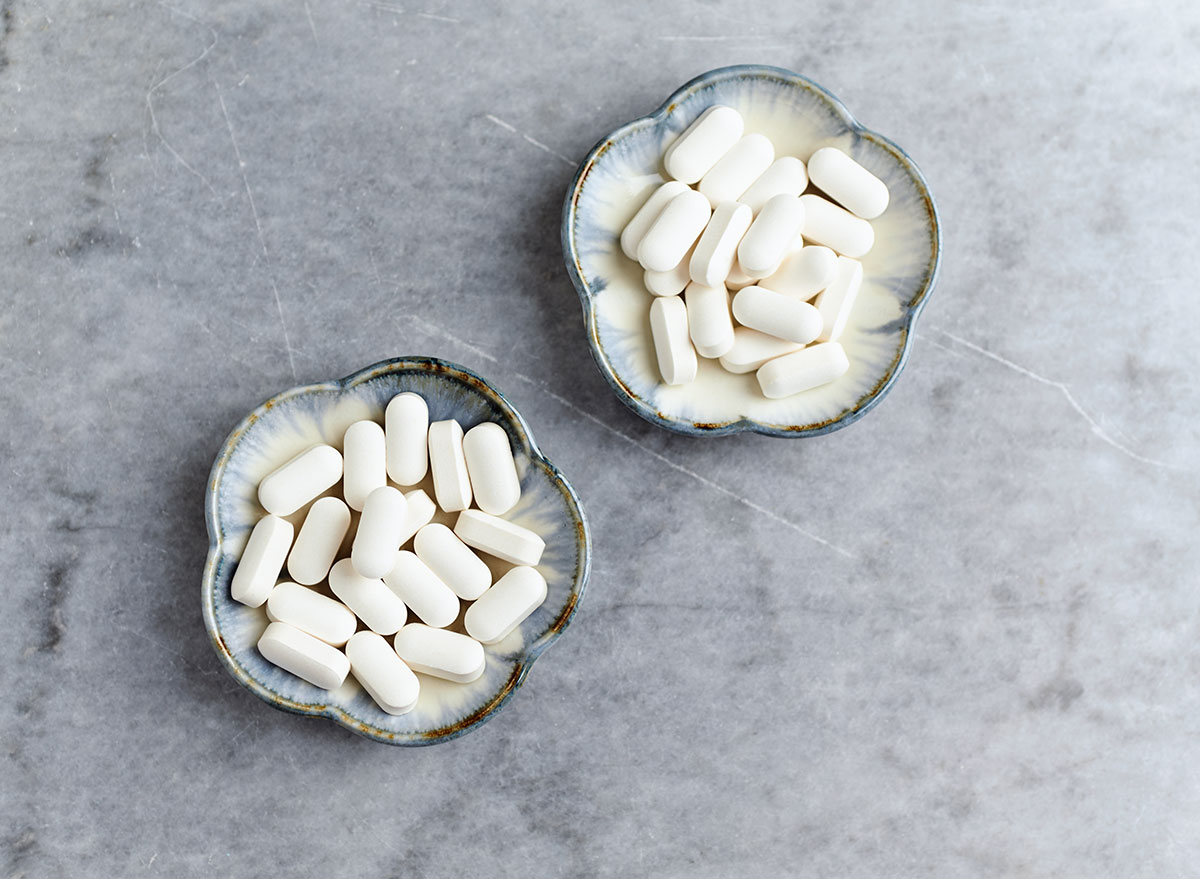
"GABA (gamma-aminobutyric acid) is an amino acid that is naturally occurring in the body. It acts as a neurotransmitter in the brain, which is a chemical messenger. GABA's role as a neurotransmitter is to inhibit or block some signals to decrease nervous system activity, leading to a calming effect," comments Trista Best, MPH, RD, a registered dietitian at Balance One Supplements.
"Supplementing with GABA is certainly an option for someone who is having difficulty falling asleep, especially for those with reason to believe they have significantly low levels. Because GABA has a calming effect it can lead to excessive drowsiness," she continues, noting that this is why it should be taken before bed when there is no need for driving.
CBD
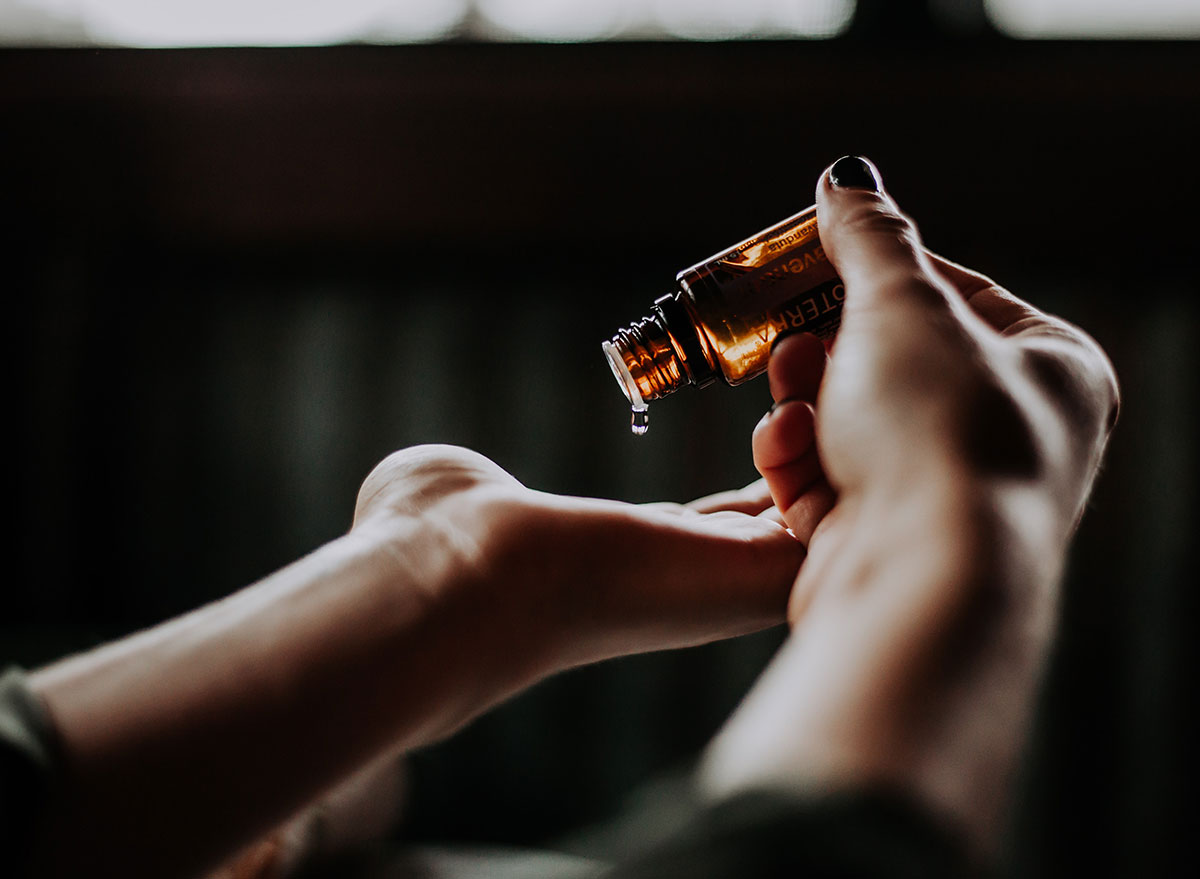
Cannabidiol, more commonly known as CBD, is one sleep-promoting supplement that gets the seal of approval from Kylie Ivanir, MS, RD, who runs her own private practice called Within Nutrition. "CBD, one of the main cannabinoids in the cannabis plant, interacts with the endocannabinoid system which helps regulate many processes in the body. While difficulty sleeping may be due to a variety of reasons, if it is caused by factors such as anxiety CBD may be beneficial," she says.
"Research shows that CBD can have a calming effect, which can help reduce stress and improve sleep quality. Furthermore, if chronic pain is interrupting sleep, CBD has also been shown to help relieve pain and thereby aid in sleep. CBD may also interact with receptors in the brain that govern sleep-wake cycles, promoting sleep directly," she adds, pointing to this scientific review of cannabis, cannabinoids, and sleep.
Lemon Balm
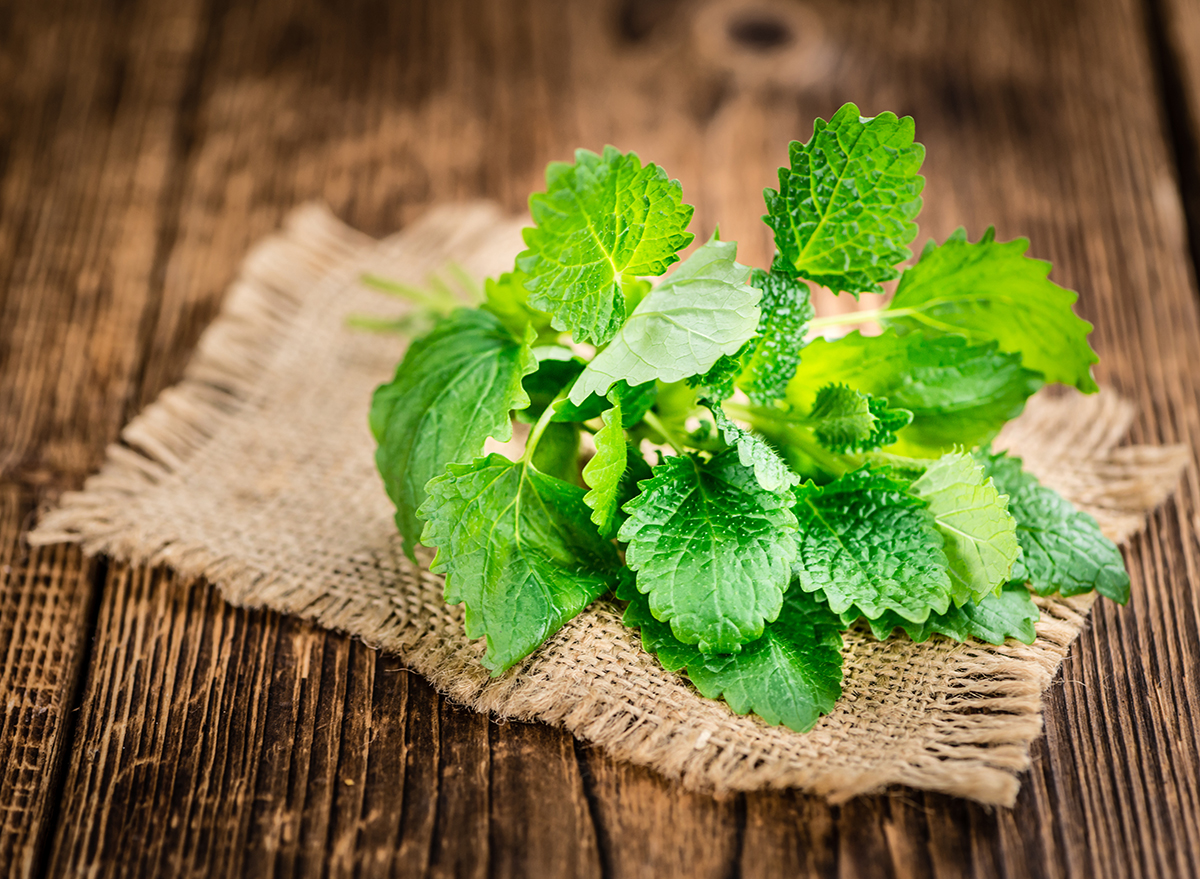
Research indicates that lemon balm may lower anxiety and improve sleep disturbances. We're all ears. (And hooking it to the kettle to brew a few bags of lemon balm tea.)
"This soothing herb takes the edge off and lowers stress and cortisol. It may reduce depression, and it's great for insomnia," as The Nutrition Twins shared in one of their newsletters. They recommend brewing two or three bags of lemon balm tea or taking it as a supplement. Another idea: "Add some liquid [lemon balm] extract to water and even take it in the middle of the night if you're tossing and turning."
READ MORE: 4 Best Teas for Sleep, According to Experts
Jujube
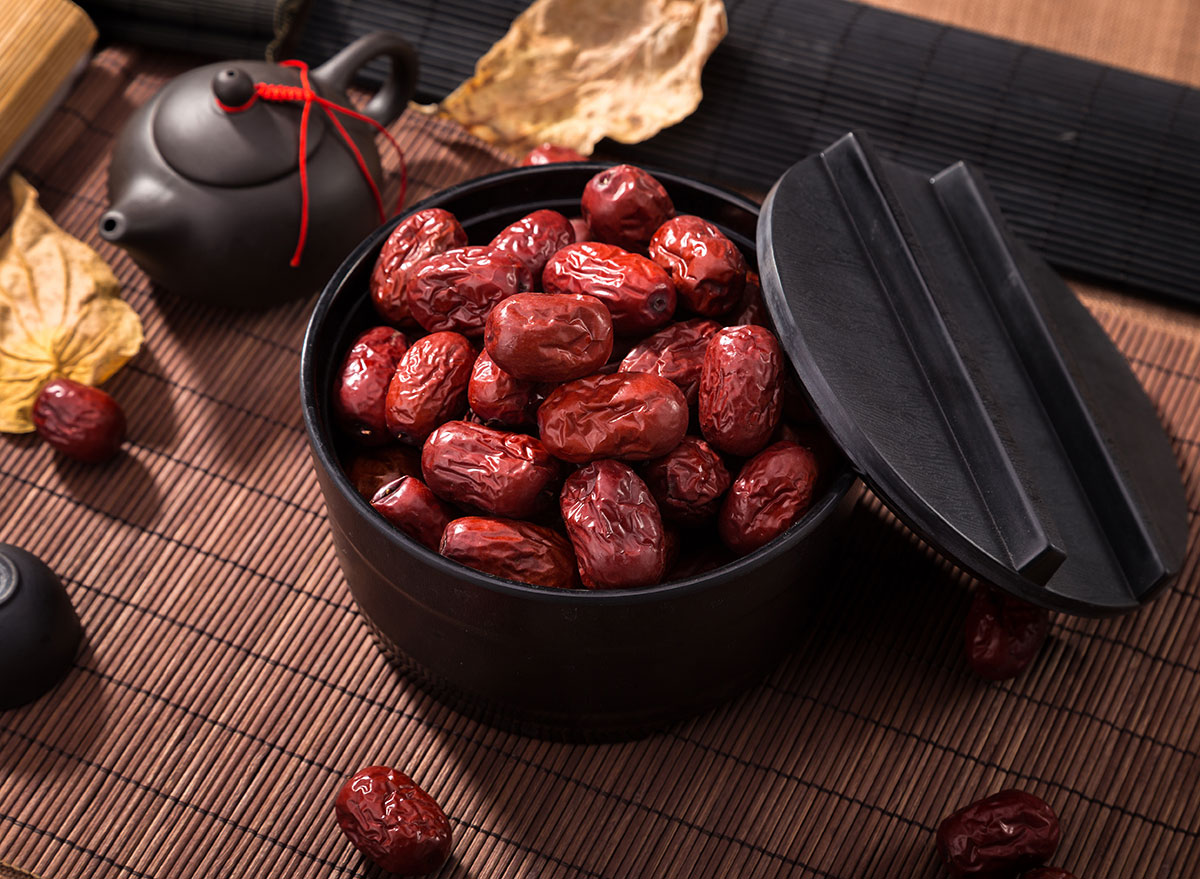
Nope, we're not talking Jujubes, the beloved gumdrop candies (sorry). "Jujube could be the most popular fruit you have never heard of! Jujube is popular through many Asian countries, and in fact, is the second most used herb in Taiwan for supporting healthy sleep," offer Professor Choi Seung-hoon MD (KM), Ph.D. and Kerry Hughes, BS, MS, citing studies like this and this.
"Jujube is a shrub or small tree that has shiny green leaves and thorny branches, but its main attraction is its fruit, which are purplish-red, and which wrinkle like dates as they ripen fully. They are popular as snacks, but the seed and fruit extracts have also long been used traditionally for supporting health and deep, restorative sleep." For more ways to support your sleep health, check out 40 Best and Worst Foods to Eat Before Sleep.
